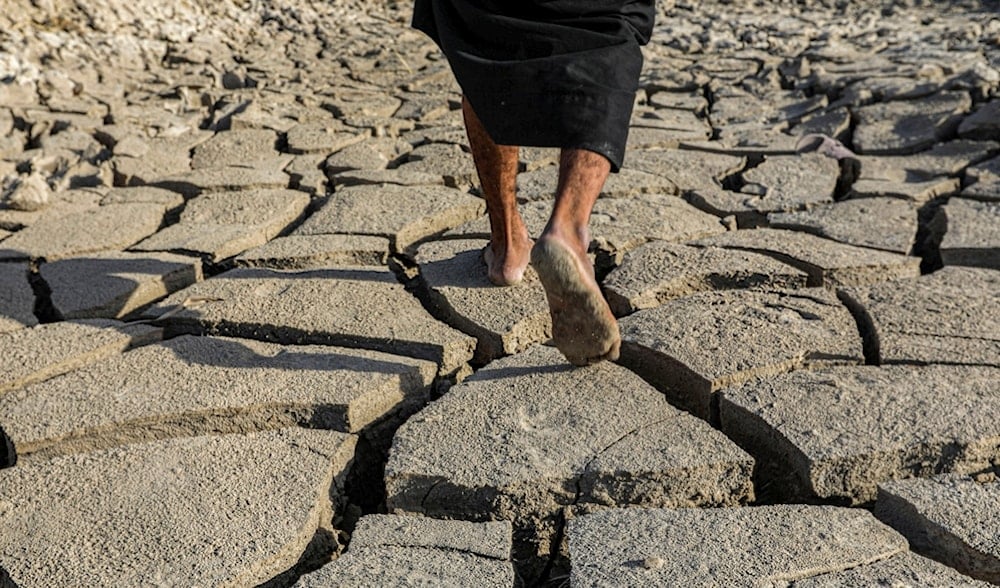Iraq needs specialized negotiation team to tackle water crisis
Iraqi agriculture advisor Mahdi Damad says Baghdad must form a specialized negotiation team with neighboring countries to secure water rights.
-

A fisherman stands on dry ground in the Chibayish marshes during low water levels in Nasiriyah of southern Iraq, Saturday, Aug 3, 2024. The Iraqi marshlands are listed as a UNESCO World Heritage Site. (AP)
Iraq must establish a specialized and permanent negotiation team to address the country’s worsening water shortage crisis, an adviser to the Iraqi Ministry of Agriculture, Mahdi Damad, told RIA Novosti on Wednesday.
“We need a specialized and permanent technical negotiating delegation that would hold talks with neighboring countries and be linked to the prime minister, comparable in level to colleagues from the delegations of neighboring countries. This way, we will be able to ensure Iraq's right to water … Iraq has the right to access water without any detriment,” Damad said.
Damad explained that the ongoing crisis has placed severe pressure on Iraq’s agricultural sector, with the government unable to allocate sufficient quotas for key summer crops, including barley. He stressed that water scarcity has become a major obstacle to food production.
Iraq introduces new irrigation systems
As part of its response, the Agriculture Ministry has begun shifting to modern irrigation methods to conserve limited supplies. “Being the main consumer of water, we, the Agriculture Ministry, are certainly taking precautions, including switching to sprinkler irrigation for wheat … This system saves 30-40% of water compared to ground or surface irrigation. We have also started switching to drip irrigation for both palms and citrus in the orchards,” Damad said.
Dams in Turkey, Iran deepen Iraq’s water crisis
Iraqi officials link the worsening shortage not only to climate change but also to dams constructed by Turkey and Iran on the Tigris and Euphrates rivers. These two rivers are Iraq’s main water lifelines, and reduced inflows have driven reserves to record lows.
Earlier this summer, Water Minister Aoun Diab warned that Iraq’s reserves had reached their lowest levels in years, raising the risk of crop failures and severe shortages across the country.
Read more: Tishreen Dam admin warns Iraq government of collapse amid shelling

 2 Min Read
2 Min Read








